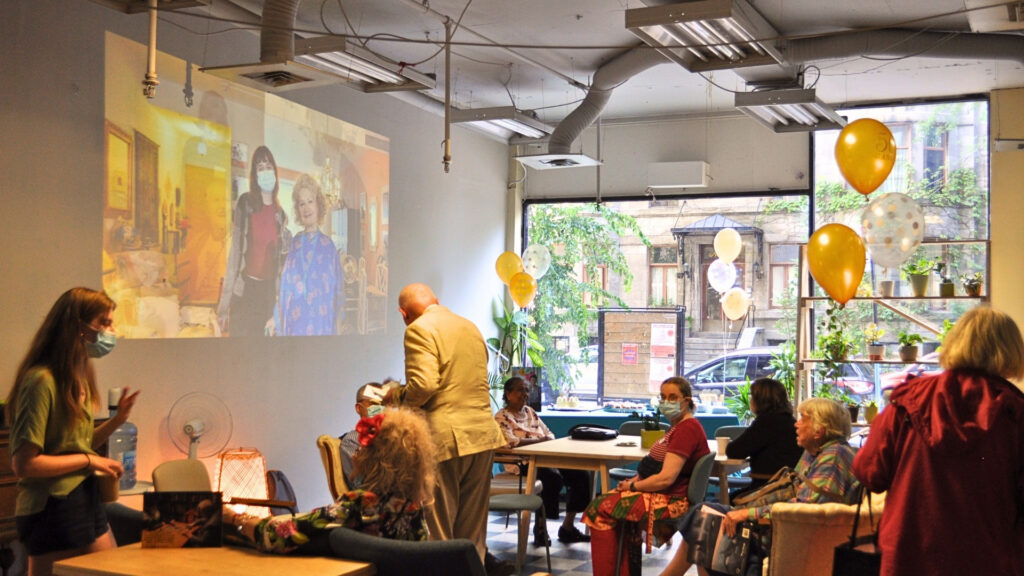About us
For the past 100+ years, the Yellow Door has met the needs of its evolving community. Today, we aim to promote social inclusion of all ages, mobilities, and incomes through volunteer services for seniors, wellness groups, and connections over food.
Thank you to everyone who participated in the filming of video, created by the talented Ilich Léon.
OUR VISION
To empower older and younger adults to initiate and engage in community and creative projects that promote social inclusion, combat urban isolation across all generations, and spark positive societal change.
OUR CODE OF CONDUCT
By following this code of conduct, YD community members contribute to a positive and safe organizational environment that prioritizes the well-being of all parties.
OUR HISTORY
1887
The YMCA of McGill University was founded by a group of students.
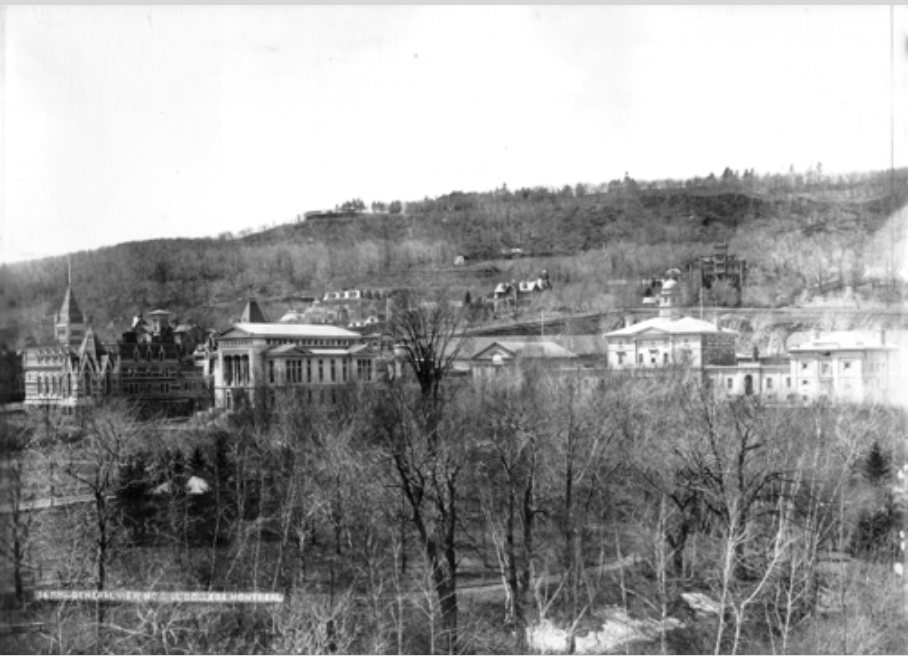
Archives (McCord Museum)
1904
With the support of Lord Strathcona, The YMCA of McGill University obtained a provincial charter.
1928
The work of the YMCA in universities was taken over by the Student Christian Movement of Canada. Today, the McGill Chaplaincy Services still serves students as a drop-in center where they can meet for spiritual advice and companionship.
Late 1960s
The Yellow Door Coffeehouse grew out of an initiative of the Student Christian Movement. Staffed by local artists, it provided a showcase for music and poetry.
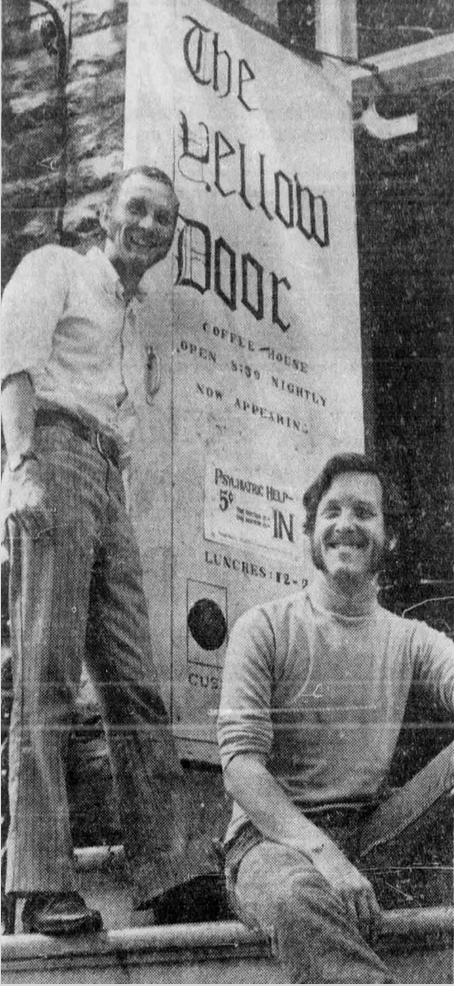
1967-1971
The Coffeehouse played an active role in the community, serving lunch to war resistors, students, the elderly, and homeless persons.
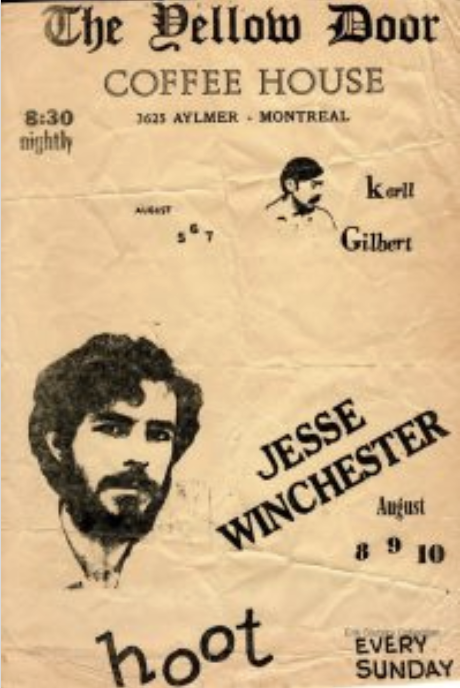
1970-1972
In response to the counterculture drug
scene, a drop-in psychiatric clinic was set up and Douglas Hospital doctors counselled youth with drug addictions.
1972
Our Generations program was started with a Local Initiatives Projects grant used by a group of McGill students to conduct a door-to-door survey of the elderly living in the community. Generations has been maintained with grants from the Quebec government, Centraide, and the generosity of private individuals and foundations.
1986
Centraide recurrent funding begins.
1987
The Yellow Door celebrates 100 years!
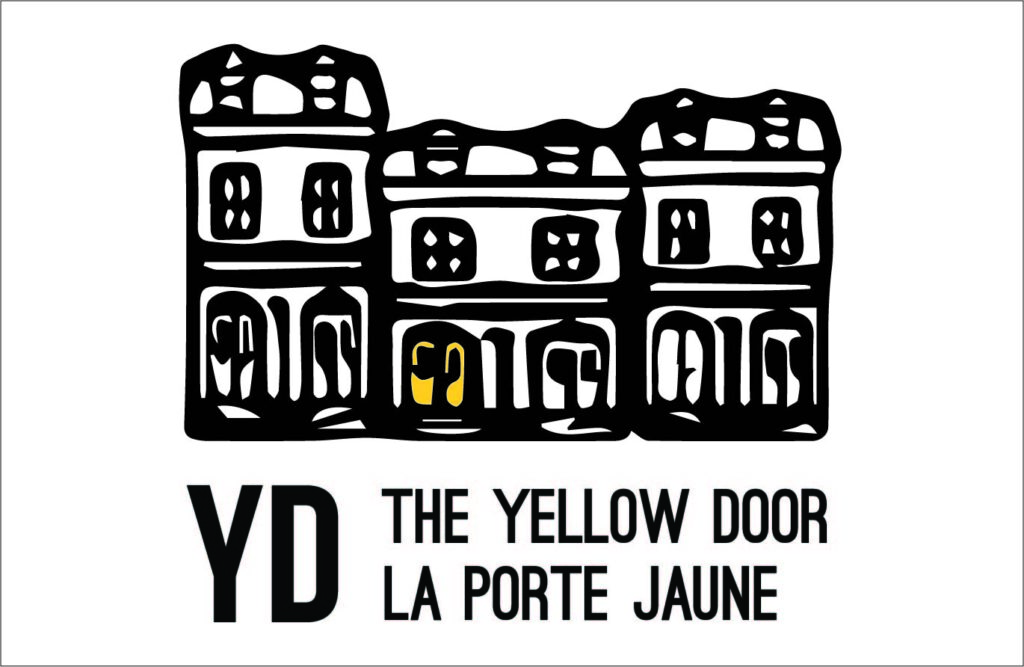
2000
Programme de soutien aux organismes communautaires recurrent funding begins.
2019
This year marked the amalgamation and official name change from the YMCA of McGill to The Yellow Door.
2020-2023
The global COVID-19 pandemic prompted the organization to reassess its programs, services, and internal processes. In response, new efforts were made to support digital literacy among seniors and to reach those without internet access, ensuring continued connection and care during a time of isolation.
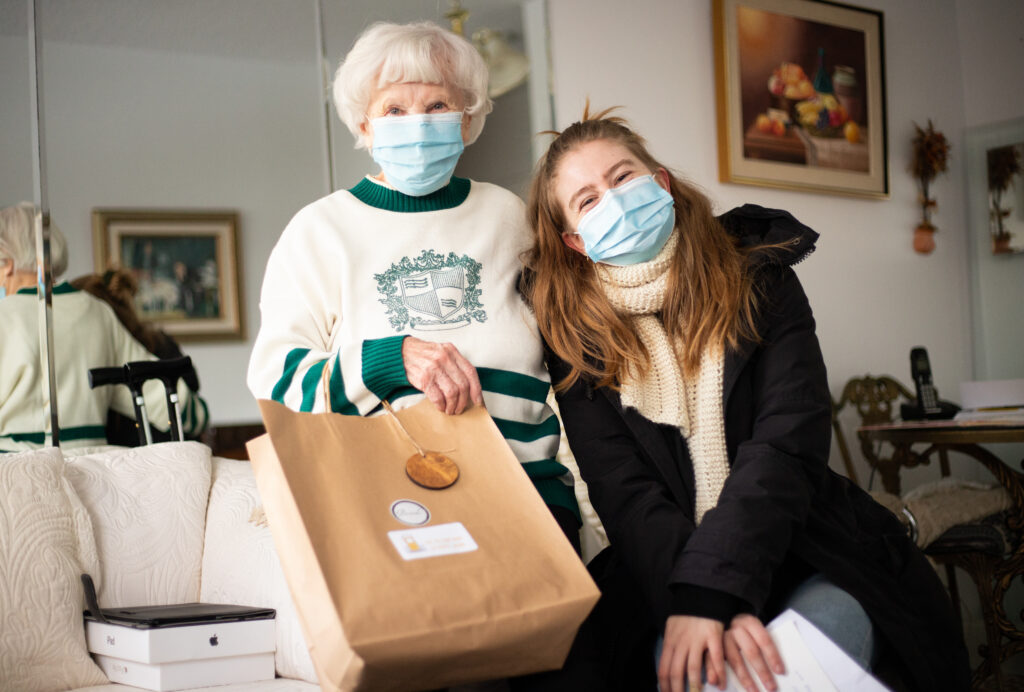
2022
Generations celebrates 50 years!
